As a landmark of the Kingdom of Belgium, Waterloo was attached to the classic battle that marked the end of the dynasty of French under Emperor Napoleon Bonaparte.
After Napoleon's return to power in 1815, the countries that he opposed established the seventh coalition, Britain, Russia, Austria and Prussia. Napoleon decided to attack the enemy before they could even invade France.
Today I visited the tranquil old battlefield!!!
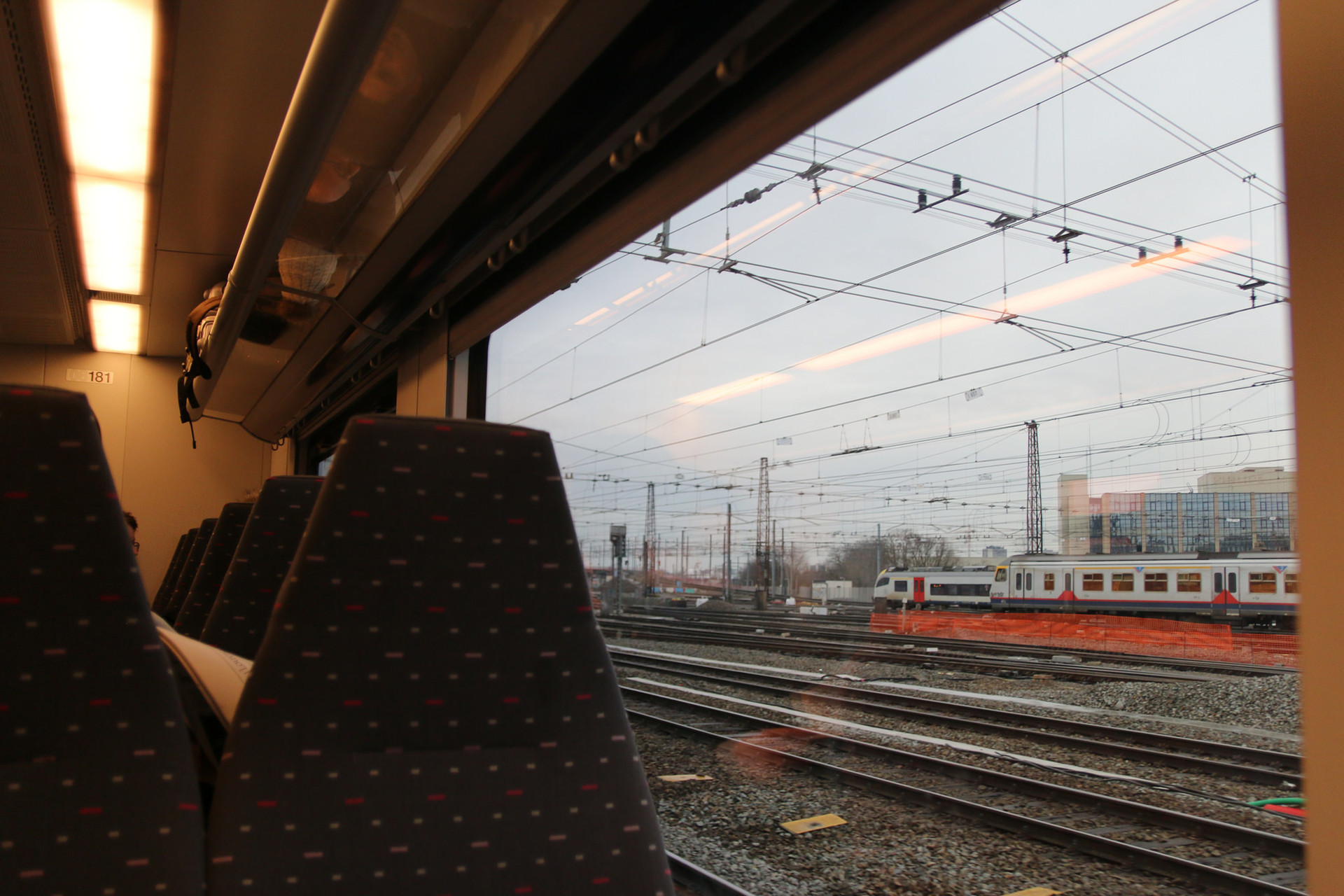
The train from the Bruxelles to the suburbs was about 10 minutes away, but I still do not believe this is Waterloo. Because in my imagination, the old battlefield must have been a place of rugged terrain, but the scene that appears before the eyes is quite the opposite.
Located about 20km from the capital city of Brussels, Waterloo is a peaceful and prosperous town with flat asphalt roads crossing over immense wheat fields. Far away are the farms of the Belgian, glimpsing the shade of bright red tile roofs with typical Wallonia architecture.
I'm afraid I will not find any traces of the classic battles in the past. But worry is superfluous. By today the memory of the Battle of Waterloo is still kept carefully in a carefully built Belgian monument.
I was unfamiliar in this country. But the car still struggled without hesitation because it was guided by a soft female voice over the rearview mirror mounted on the right hand wheel of the steering wheel and connected to the global positioning satellite. All around, there is absolutely no sign of a slight war. Nowhere, to the right of this modern highway, has historically been a fierce fighting that has determined the historical dimension of modern Europe: the Battle of Waterloo. Here, in June 1815, a fierce artillery battle took place, and it was attacked from ten o'clock in the morning until midnight, between the two opposing forces: cavalry, infantry, artillery ... took place on muddy rainy summer field. Historians wrote: That evening, June 18, 1815, on a field of about six square kilometers, piled up the body of 25,000 French soldiers led by First Napoleon Emperor, and 22,000 British troops. and the German, Austrian, Dutch, Swiss, ... British Wellington prefects; Nearly ten thousand people died or died in the blood and mud, most of them injured and died of infection
- Remember the Poem of Victor Hugo.
Victor Hugo's poignant poem written about the Battle of Waterloo appeared from my childhood memory, and the countless history of the battle drew inspiration from me, nearly seventy years later, with this place. Yes, the scenery here today is absolutely not war-torn, even in the Second World War, only keeping what posterity holds. Here, at a farm called Vieux-Genappe, Napoleon first placed the headquarters; On the night of June 17, 1815, he personally planned a battle plan. At the same time, some fifty kilometers north of the road, in a roadside inn, the Wellington ruler and the Joint Chiefs of Staff attempted to calculate the moves.
I dreamed about the past, the girl's voice said: "Your destination is a hundred meters away ... fifty meters ...". The bus was rolling on a quite street. Right in front of the intersection, a splendid shop selling Jaguar cars, a British luxury brand. "...Attention. Your destination is on the right side of the road. " I looked to the right: just down the street was an old iron gate that used to be the yellow belligerent era: 1815. The locator reminded: "Your destination is on the right. Move up a little and turn right, parking 50 meters behind this house. "
"Wellington Museum", formerly the inn said, is a two-story house, not a big two-story house, facing the front of the villa but very deep inside, the hip has a narrow garden. The iron gate that opened the street to the 1815 number, I guessed the capital for the horse, the car of the patrons go straight straight. Very quiet In addition to some of us, there is an additional group of visitors about six to six more to visit: It is unclear today the bad weather, or no one is curious and nostalgic to take it hard to go here. .
Sitting behind the ticket counter and the souvenir shop was an old lady, but her expression was warm. She put a pile of machines like big wireless phones, asked what language they used, turned on the regulators and handed one to each. No one is guided, there are no people available to explain, visitors see themselves to learn by themselves.
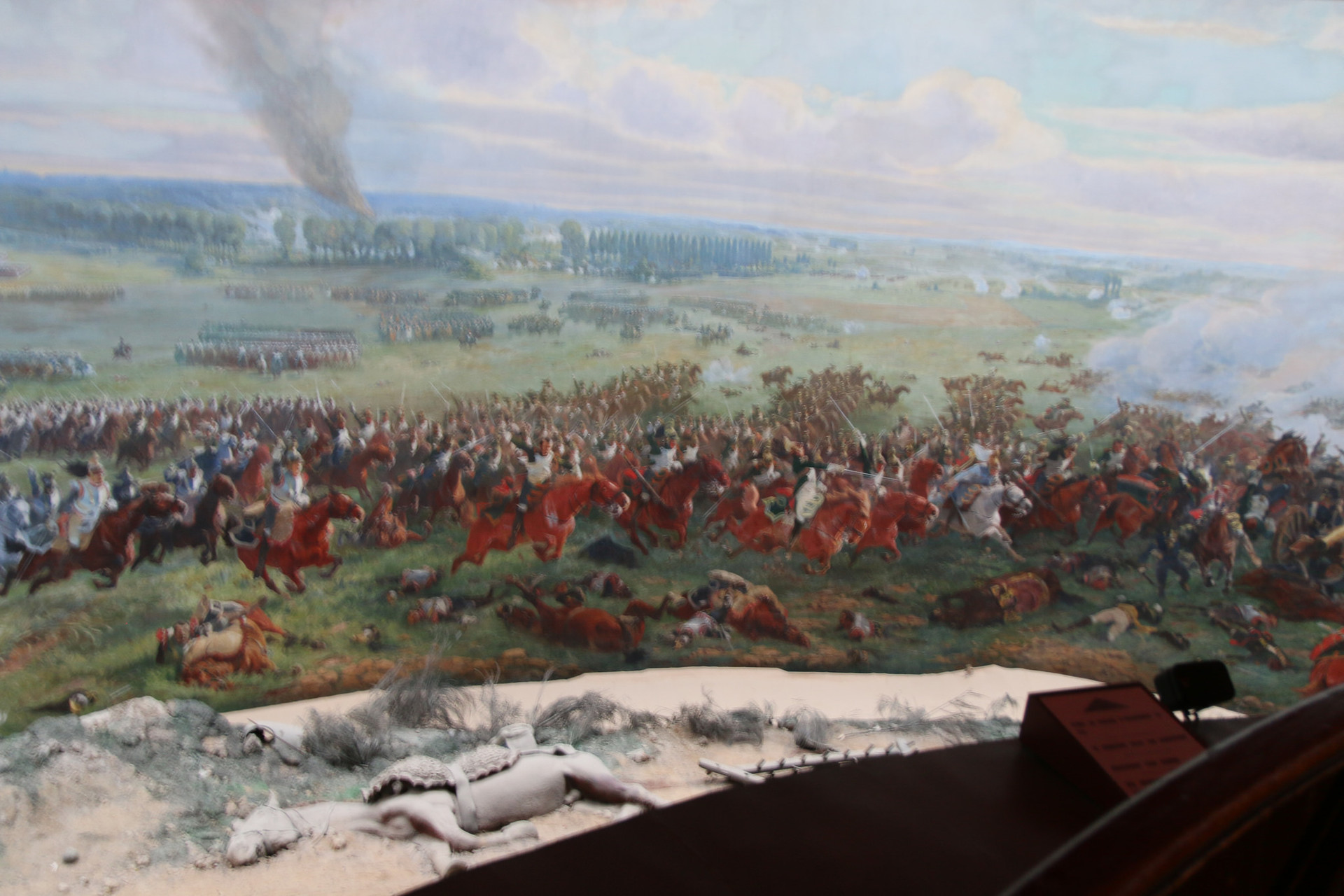
I saw the museum is full of battlefields and many artifacts: weapons, military equipment ... but actually for those who read more or less history, nothing new. Most impressive is the souvenir. In the first room, a single wooden bed was covered with a red mattress: at this bed, the colonel, Lord Gordon, the commander-in-chief of Wellington's battalion commander, stopped breathing the night before the battle. At the end of the room, a wooden carved wooden box: the one used to carry the battlefield to the baron Constan Rebecce, chief of staff of the Swiss Army; The long, beautifully decorated sword of a German staff officer, etc. The widest part occupies the ground floor of the house, probably renovated later, for the melee battle.
And finally, before the guests left the museum, the private room of the parish priest's house, with a wooden desk, a bed, as simple as all the furniture in the bar. His statue is in front of his desk, his back to the fireplace, his face focused, his goose feather in his hand: the Duke is writing the battle in the night of victory, to be sent to the press office. . In a glass frame hanging in the corridor, The Times, the third issue published on Tuesday, June 22, 1815, published in London the official full text of the victory of the coalition. The bottom of the page, the preliminary list of commanders and senior officers died or killed that day. I counted countless: 39 dead and many wounded. Among the deaths was the Brunswick County School District; The prince of Orange was badly wounded, etc. ... Then the names were kept in the total number of 22,000 who left that day and a few days later ...
For the French, the Belgians ...,people all know a lot about Waterloo,
Napoleon was remembered as a great military leader in the wars in which France faced many coalitions. Thanks to Napoleon's strategy, the armies of the French Empire (La Grande Armée) often won in these battles, even when the enemy had a superiority in numbers.
But when it comes to that illustrious military career, history does not ignore Napoleon's defeat in the classic battle of Waterloo. This is one of the most famous battles and the final battle for the "Napoleon Wars".The Vietnamese people we understand about Dien Bien Phu or the battle of Nguyen Hue Nguyen demolished Thanh of China. But for visitors from another culture, it is difficult to fully sense the battle over the hours of visitation, if not to turn back the old history to understand the political context of Europe at that time.
- How the Battle is decided
Going to the Battle of Waterloo, tourists can take part in the rich activities of the monument.
My first choice not to be missed was climbing 226 steps to the top of the "Lion Hill" (Butte du Lion).
- Relive the old battlefield
In addition to climbing to the top of the "Lion Hill" to see the whole battlefield scene, I also boarded a train to visit the field battlefield. Or look at the model of the battle is designed feat, visit the wax museum with the main characters of the Battle of Waterloo, then into the cinema to see the historical film re-enacted the battle again in the past ...
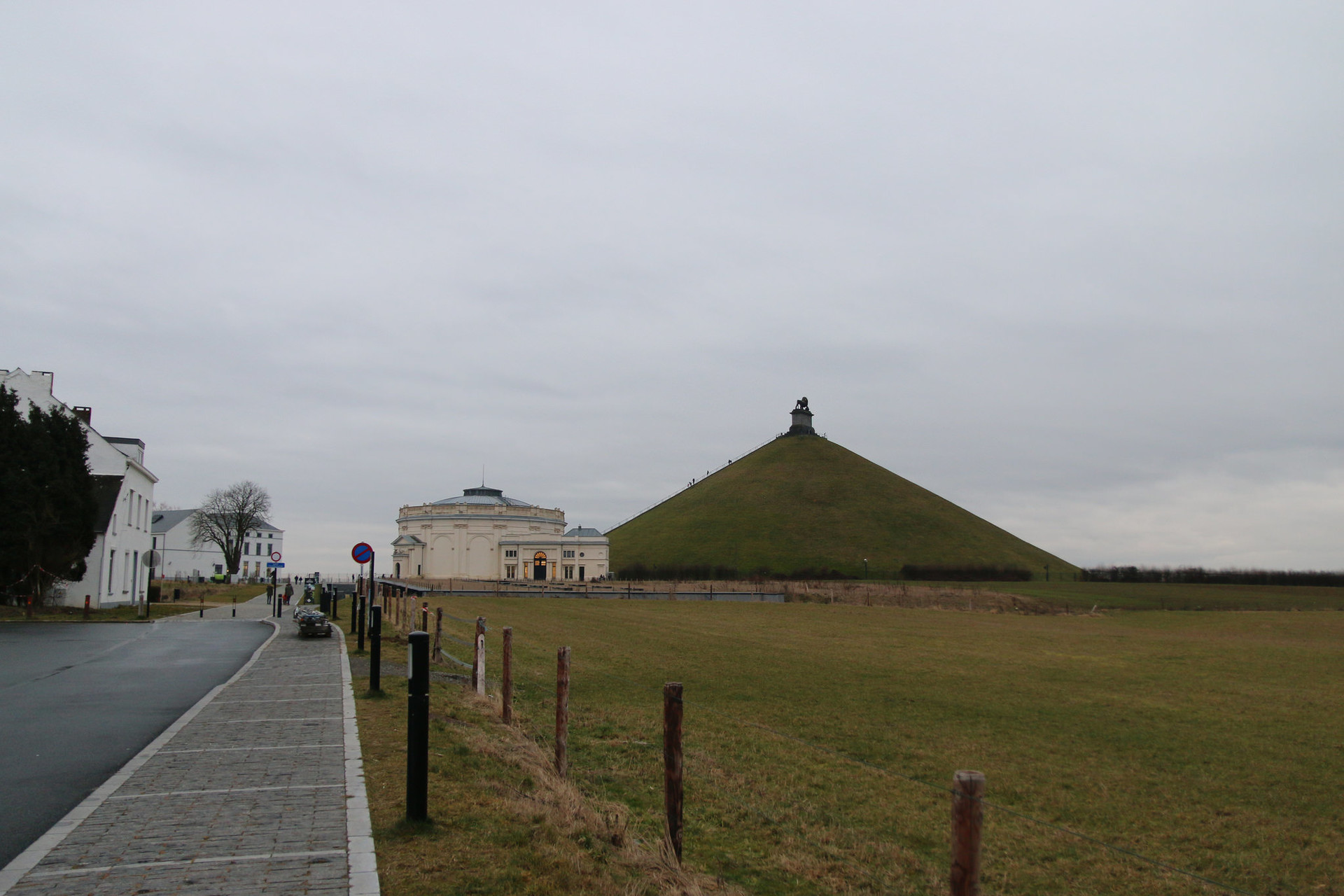
The 40m high artificial hill was erected between 1823 and 1826, according to the legend of the then Prince of Orange (later King Guillaume II) of the Netherlands who was wounded in the Battle of Waterloo. At the top of the hill is a statue of a lion face towards France.
Standing on the top of a hill, I could explore the scenery of the ancient battlefield, now spreading barley fields, a peaceful village with winding winding roads.
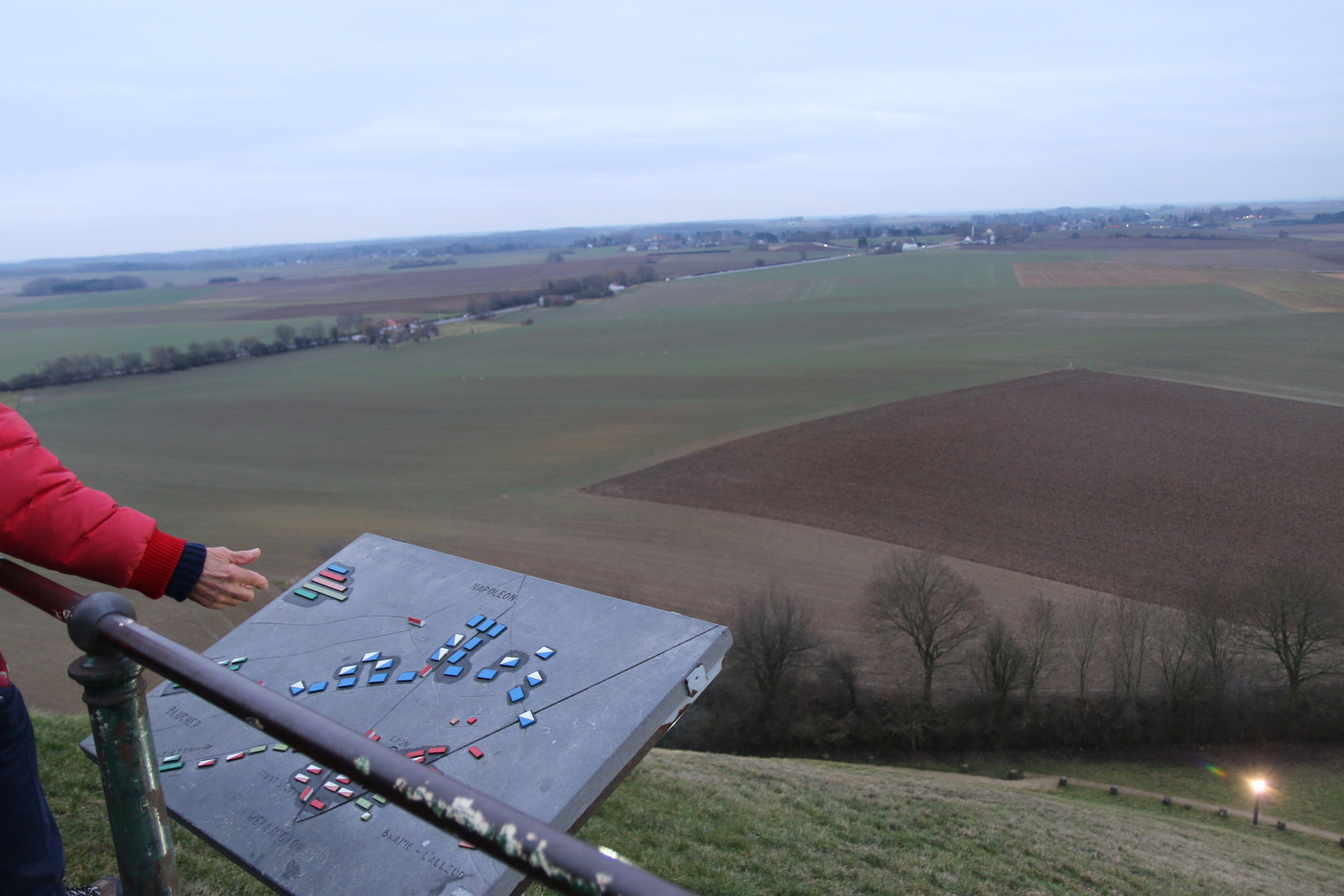
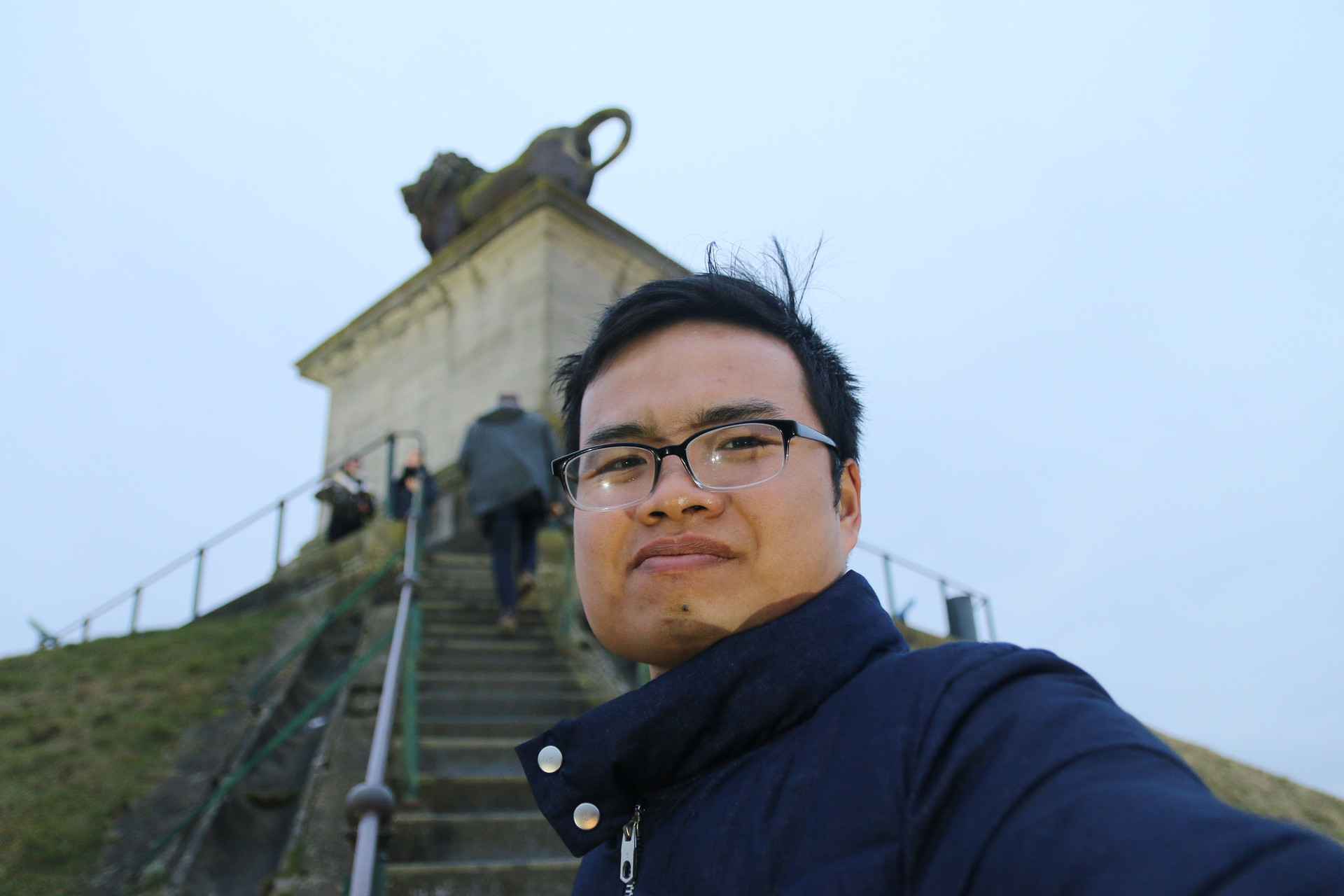
As I am known for enhancing the attraction of the resort, on the weekend, the management of the monument efforts to revive the atmosphere of the war in the past by arranging for tourists to eat together. Stay with an acting group of Waterloo resort.
Oh sorry, today is wednesday !!! Hu hu
All I'm going to quote is a famous saying of Asia, no matter how good I am, the truth is still true:
"Know yourself, know the enemy, hundred battles hundred wins"
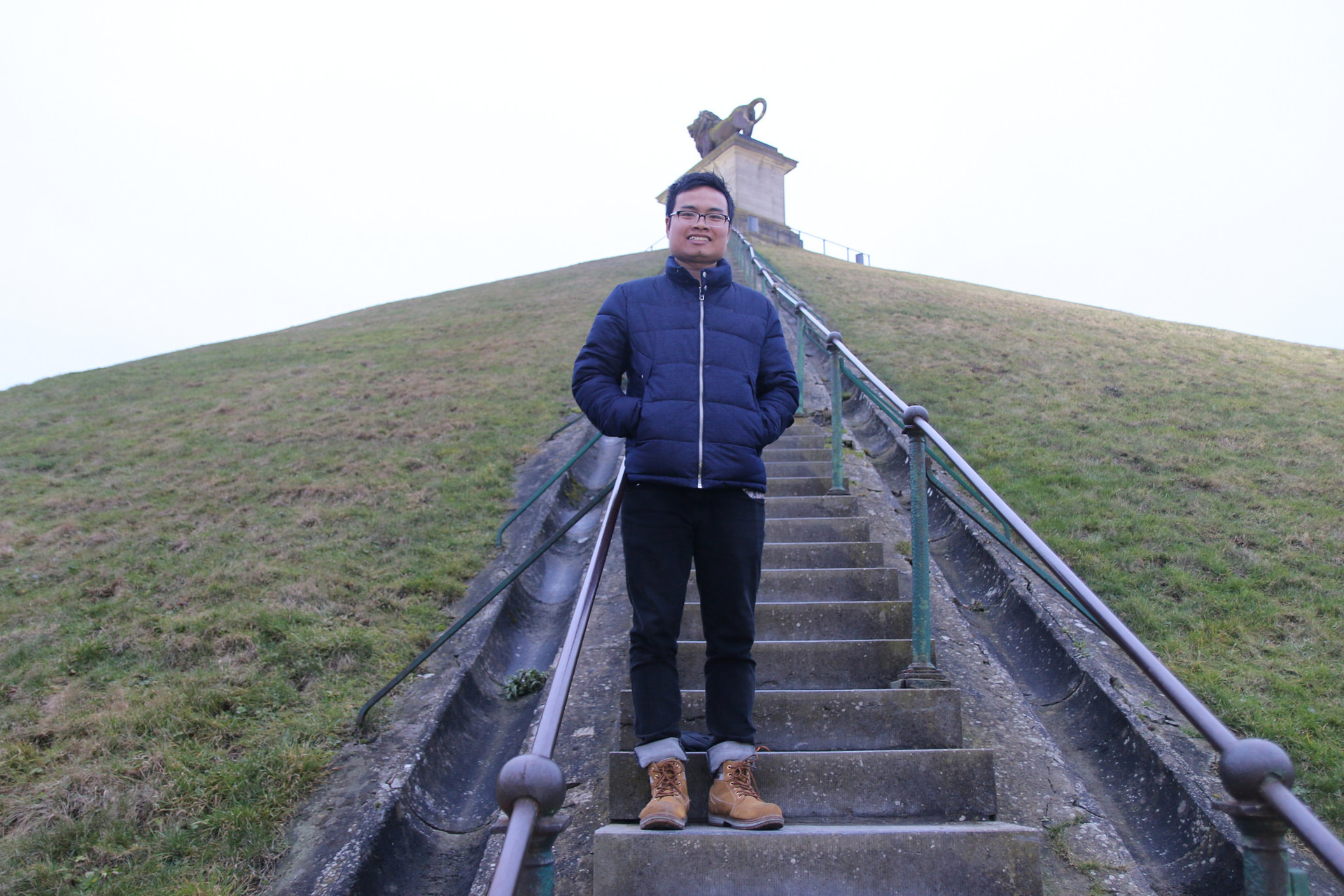
Goodbye Waterloo! Goodbye Napoleon!!!
